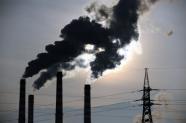
World needs clean energy revolution: UN chief
Mai 3, 2010 - Agence France Press
UNITED NATIONS — Rich and poor nations need a "clean
 |
| The Druzhba thermal power station in Sofia |
energy revolution" in order to cut greenhouse gas emissions responsible for global warming, UN chief Ban Ki-moon said here Wednesday.
"We cannot achieve the (poverty-reduction) Millennium Development Goals without providing access to affordable modern energy," he said as he opened a day-long energy conference.
Noting that 1.6 billion people around the world lack access to electricity while two to three billion still rely on traditional energy sources such as firewood, peat or dung, the UN boss said access to energy must be expanded "in the cleanest, most efficient way possible."
Ban spoke as he launched a report by his advisory group on energy and climate change that calls for "universal access to modern energy services" by 2030 and stresses the need to cut energy intensity by 40 percent also by 2030.
Energy intensity is measured by the quantity of energy per unit of economic activity or output.
"The aim of providing universal access should be to create improved conditions for economic take-off, contribute to attaining (the development goals by the 2015 target) and enable the poorest of the poor to escape poverty," the report said.
It added that curbing global energy intensity would require developed and developing countries to strenghthen their capacity to implement effective policies, market-based mechanisms, investment tools and regulations with respect to energy use.
The report said these ambitious goals can be achieved due to technology innovation through adoption of appropriate national strategies and international finance, including innovative financial mechanisms and climate finance.
It said 35 to 40 billion dollars in capital would be needed on average per year to achieve basic universal access to modern energy services (for cooking, heating, lighting, communication and education) by 2030.
The study also said participation by the private sector was essential to meet those goals.
It pointed out that energy access has been dramatically expanded in countries such as China, Brazil and Vietnam while dramatic improvement in energy efficiency has been recorded in China, Denmark, Japan, Sweden and California.

| 


